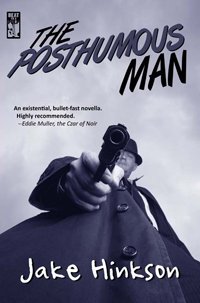
Like Hell on Church Street, this book’s central protagonist is a preacher. Whereas in the former Geoffrey Webb is a con man only pretending to believe in the good Lord in order to fleece the gullible, here Elliot Sterling is a genuine man of the cloth, although one who has lost his faith – and his wife – after a terrible tragedy. When we meet him, he is fighting the emergency room clinicians who are trying to save his life after an overdose. Ultimately they succeed, though not before Elliott technically dies for three minutes. Psychologically he sees his death and rebirth as starting a new life, not in any joyful way but he is now able to acknowledge his old life – his job and his marriage – is over. Nothing remains.
Anxious to avoid further prodding and probing from the doctors, Elliott escapes from hospital only to see his ex-wife arrive with her new lover. Realising he is now totally alone, Elliott impulsively starts up a conversation with Felicia Vogen, one of the ER nurses who is going home after her shift. Perhaps recognising a fellow lost soul, she takes pity on him and invites him out for drinks. The couple are intercepted on the way home by local cop DB who seems to be taking an unusual interest in Felicia.
Practically abducted, Elliott is forced to travel to Felicia’s home where he meets DB’s deaf and mute twin, Quiet Tom. It seems that Felicia, the twins, and their leader Stan the Man, are planning on relieving the hospital of a shipment of OxyContin, which they mean to offload to one of Felicia’s exes, Fuller, for $2 million. Felicia manages to talk the gang into giving Elliott an ‘out’ but to his own surprise he wants ‘in’ on the job. His motivation isn’t so much greed or even excitement but a vague concern for Felicia and a recognition that he has nothing to lose. So begins a long, tense and action-packed night as the crew have to pull off the heist and Elliott has to survive the plotting of others.
This is a quick read, but so much is packed in. Once again, religious questions predominate with Stan the Man goading Elliott over his loss of faith while at the same time explaining how his own interpretation of the Bible influences his own life. He wishes to be ‘the chief of sinners’ because without sin there can be no redemption, and the greater the sinner, the more he is saved.
There is time within the narrative for one of Hinkson’s trademark damaged families. This time it’s a father and daughter who dispose of corpses on their landfill. To divulge the nature of Elliott’s tragedy would be a huge spoiler, but it is hinted at throughout, and then exposed for maximum effect at the denouement. It hit me like a sucker punch and provides an extra resonance to the book.
The whole book is so well written yet seems effortlessly done. I won’t be giving out five stars many times this year, but for The Posthumous Man it would be perverse not to.
Beat To A Pulp
Print/Kindle
£0.77
CFL Rating: 5 Stars